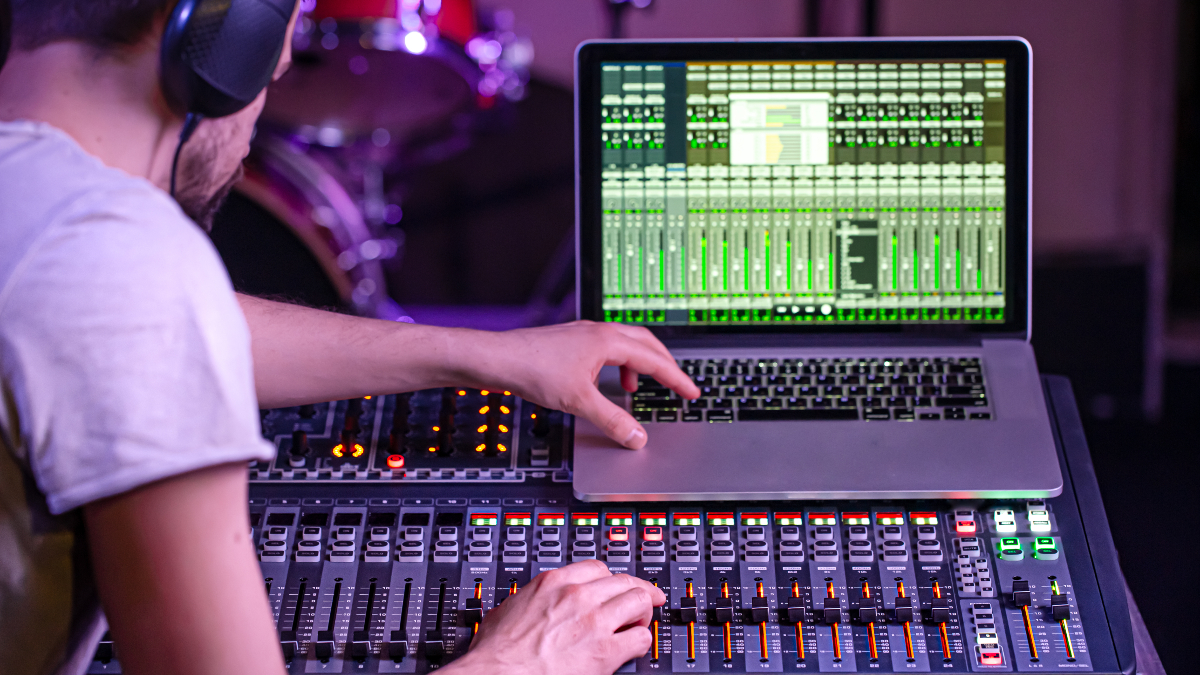
There are many factors to consider when choosing which digital audio workstation (DAW) will be your go-to program. This is a question that has been asked by producers, engineers, and musicians alike. In this article, we explore some of the most popular DAWs on the market today to help you make an informed decision about your next purchase.
What is A DAW, and What Does It Do?
A DAW is a digital audio workstation that can be used for recording, mixing, and mastering. It’s typically used to record multiple music tracks at once (and edit the different takes), manipulate sounds with effects such as reverb or delay, mix all of the parts into one stereo file, then master it.
Understanding the fundamentals of music production can help you decide what type of DAW works best for your distinctive needs. Whether you’ll go for a robust, powerhouse DAW or opt for a more streamlined one is up to you.
Here are some DAWs you might want to consider for your next music production. Furthermore, you can also check it out here to give you a complete overview of the top-rated and must-have DAW for every unique music requirement;
Ableton Live
This software offers both traditional and modern features that are user-friendly with an intuitive interface. The drums and synthesizers provide flexibility in creating your sound without relying on samples from third-party libraries. There’s also the Push controller, which makes it easy to play live sets by triggering clips directly from the hardware keyboard – something not found in other offline DAWs.
Logic Pro X
Logic has always been known as being a powerful but affordable music production tool due to its low cost of entry point (free). It includes advanced tools like MIDI sequencing, real-time performance recording, sampling, and automation.
Pro Tools
Pro Tools is a professional audio and music production software that offers extensive recording, editing, mixing, and mastering projects in different formats. The downside of this DAW is the high specs requirements to run it properly on your computer.
How To Find A Good DAW For Your Needs?
You’ll need to consider vital features when searching for a particular DAw to meet your needs. These features will help you identify the right solution:
Convenience
If you find it challenging to work with a particular DAW, then it may not be the right choice for your needs. You should prioritize comfort when searching for the best solution that works well with creating music.
Ease of use
The ability to get things done fast is essential. If something takes too long or there are many steps involved, it might not be worth it in terms of ease of use and efficiency. It’s also helpful to think about what features will help make life easier daily instead of only serving one purpose even though they’re excellent tools (e.g., MIDI sequencing).
Platform support
Different platforms require different skill sets, which means that you need to be comfortable with the various platforms. If your preferred DAW doesn’t work well on that platform, it may not be worth trying out to support different platforms.
Integrations
It’s always helpful when a tool can do more than one thing and integrate seamlessly into other areas. For example, if you’re using an audio editor as a part of your workflow, but there are no available VST or AU plugins to operate within that app. It might not serve any purpose, especially since there are plenty of apps with these features and won’t limit what you can do creatively because they don’t include editing capabilities.
Implementation
If you are a studio producer, for example, who likes to mix and master their work, then Reaper may be perfect for what you need – but if you’re an audio engineer who works with clients frequently and expects them to provide their mixes (because they know that’s how they want it), then maybe Pro Tools would suit your needs better.
Cost
It depends on what you’re looking for. If the cost is your main concern, then it’s easy to find a DAW which suits all of your needs and doesn’t come with overwhelming price tags.
Quality
It’s hard to pin down the exact quality of a DAW because it depends on who is using it. A good example would be if you’re an audio engineer who works with clients frequently and expects them to provide their mixes (because they know that’s how they want it), then maybe Pro Tools would suit your needs better.
Final Words
It’s always hard to pick the best solution for everyone because it all depends on your personal preferences. For example, if you’re a drummer who likes to mix and master their work, then Reaper may be perfect for what you need – but if you’re an audio engineer who works with clients frequently and expects them to provide their mixes, then maybe Pro Tools would suit your needs better.
The bottom line is there are plenty of DAWs out there which offer different features than others, so find one which suits just about every requirement possible. That way, when deadlines come up and projects get complicated; everything will flow smoothly without any hiccups.




